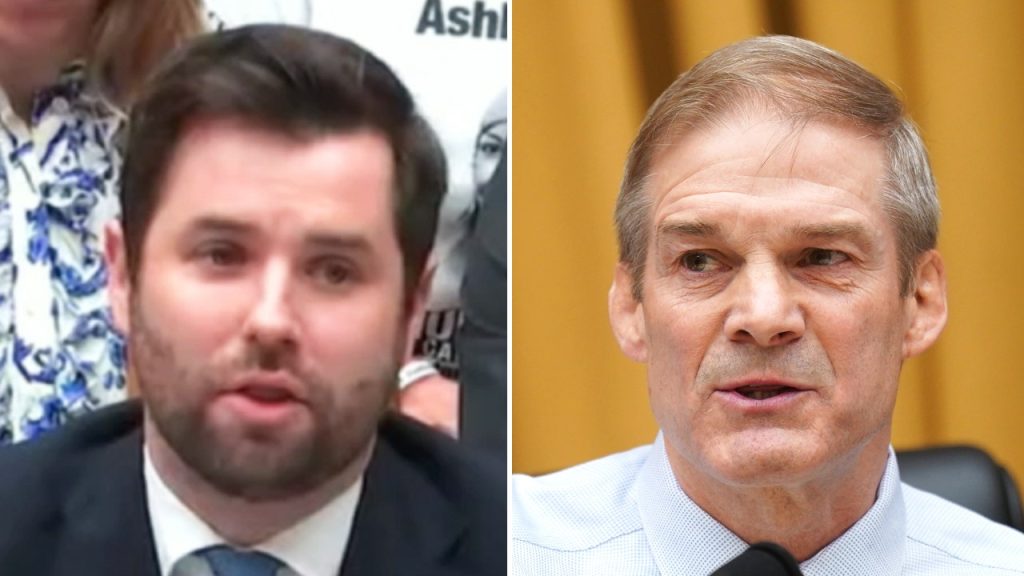Lawmakers recently questioned Robert Flaherty, a top staffer on President Biden’s 2024 campaign, about his claim that Elon Musk did not face any adverse government actions after changing Twitter’s censorship policies. Flaherty, who also reportedly worked with Facebook to regulate COVID-19 misinformation on social media, stated that Twitter’s decision to change its policies on COVID misinformation did not result in any negative consequences. Rep. Jim Jordan challenged Flaherty’s assertion, pointing out that several federal agencies targeted Musk and Twitter following these changes. Flaherty stood by his statement despite Jordan’s criticism.
During a House Judiciary Committee hearing on the “Weaponization of the Federal Government,” Jordan repeatedly questioned Flaherty about misinformation, government mandates, and Facebook’s algorithm changes. Flaherty admitted that he was not a medical expert but had advised Facebook to alter its algorithm to control what content users saw. He could not provide details on past discussions due to the time that had passed since then. Flaherty’s conversations with Facebook officials, as revealed in Facebook files from 2023, involved suggesting that certain types of conversations related to COVID-19 vaccine hesitancy be monitored more closely.
Flaherty’s involvement with social media censorship dates back to his time as the digital director for “Biden for President” in 2019 and his subsequent role as assistant to the president and director of digital strategy in the White House until joining the 2024 campaign. The Biden administration’s alleged collaboration with Big Tech on censorship issues was brought before the Supreme Court in the case of Murthy v. Missouri. The case accuses the Biden administration of working with tech companies to suppress certain information. A ruling on this case is expected in the summer, shedding light on the implications of government involvement in social media censorship.
Flaherty’s statements and actions regarding censorship and misinformation on social media have sparked controversy and criticism from lawmakers such as Jordan, who accuse the Biden administration of overstepping its boundaries and infringing on free speech rights. The issue of balancing free speech with the need to prevent the spread of harmful misinformation remains a contentious topic, with both sides presenting valid arguments. Flaherty’s role in advising tech companies on content moderation further complicates the debate, raising questions about government influence in private platforms and the potential consequences for free speech and democratic principles.
As the debate over censorship, misinformation, and government involvement in social media continues, the actions of individuals like Flaherty and the policies of the Biden administration are likely to face further scrutiny and legal challenges. The outcome of cases like Murthy v. Missouri could have far-reaching implications for the future of free speech in the digital age. It remains to be seen how lawmakers, tech companies, and the public will navigate the complex issues surrounding censorship and misinformation on social media platforms while upholding the principles of democracy and individual rights. The balance between regulating harmful content and preserving free speech rights will continue to be a topic of debate as technology and society evolve.













